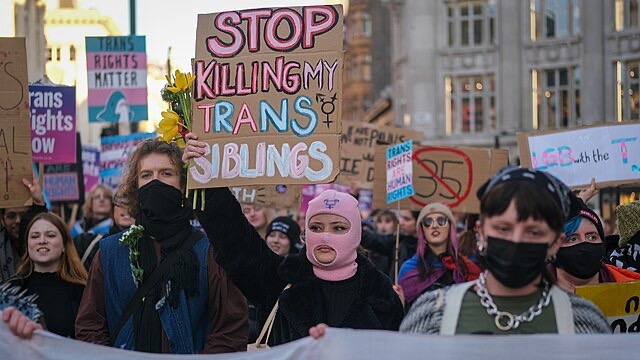In a deeply troubling trend, growing numbers of trans individuals are choosing to leave Britain, seeking asylum in other countries out of fear for their safety. What was once considered a relatively progressive nation is now witnessing an exodus driven by anxiety, discrimination, and, at times, outright hostility. It’s a stark reflection of how societal shifts and political rhetoric can profoundly impact vulnerable communities.
Why Are Trans People Leaving Britain?
Trans people are feeling increasingly unsafe across the UK. Reports of harassment, physical assaults, and emotional abuse have surged, creating a hostile environment where simply living authentically can be dangerous. Beyond physical threats, systemic barriers—such as healthcare discrimination, employment bias, and social ostracization—make daily life feel like navigating a minefield.
Many trans individuals report a constant state of hypervigilance: avoiding public transport at night, feeling unsafe accessing public restrooms, or being fearful in their own neighborhoods. This relentless anxiety chips away at their mental well-being, leaving emigration as the only perceived path to a life lived freely and safely.
Leaving home, family, and familiarity behind is not a decision made lightly. But for many, the UK no longer feels like home; it feels like a battleground.
Recent Political Climate
The political atmosphere in the UK has become increasingly charged, particularly regarding LGBTQ+ issues. Certain politicians and pundits have weaponized trans identities as a cultural wedge issue, framing trans rights debates in ways that dehumanize and delegitimize trans lives.
Policy proposals restricting access to gender-affirming healthcare, debates over trans participation in sports, and so-called “gender-critical” movements have all contributed to a sense of alienation. It’s not just about legal rights; it’s about the overall message sent to trans individuals: you are not welcome.
When public figures amplify anti-trans rhetoric without consequences, it gives tacit permission for wider societal hostility. The ripple effect is devastating, pushing more people to the desperate choice of seeking refuge abroad.
High-Profile Cases
Several individual cases have drawn media attention, shining a light on the wider crisis. One widely publicized case involved a young trans woman who fled to Canada, citing an escalating series of threats and lack of legal protections as her reasons for leaving.
In another case, a non-binary person sought asylum in New Zealand after enduring workplace discrimination and verbal assaults that authorities allegedly failed to address properly. These aren’t isolated incidents—they’re the tip of the iceberg, pointing to a systemic failure to safeguard trans lives.
Each case underlines a harsh reality: when institutions fail, vulnerable communities must look elsewhere for sanctuary.
Destinations: Where Are They Going?
Many trans asylum seekers from Britain are finding refuge in countries like Canada, New Zealand, Germany, and certain Scandinavian nations. These countries are viewed as safer not just legally, but culturally—offering robust anti-discrimination laws, easier access to gender-affirming healthcare, and public acceptance of LGBTQ+ people.
For example:
- Canada offers a relatively straightforward asylum process for LGBTQ+ individuals fleeing persecution.
- New Zealand is praised for its inclusive healthcare policies and social acceptance.
- Germany provides legal recognition for non-binary identities and broader societal support.
These nations represent hope—a stark contrast to the growing fear many feel in the UK.



